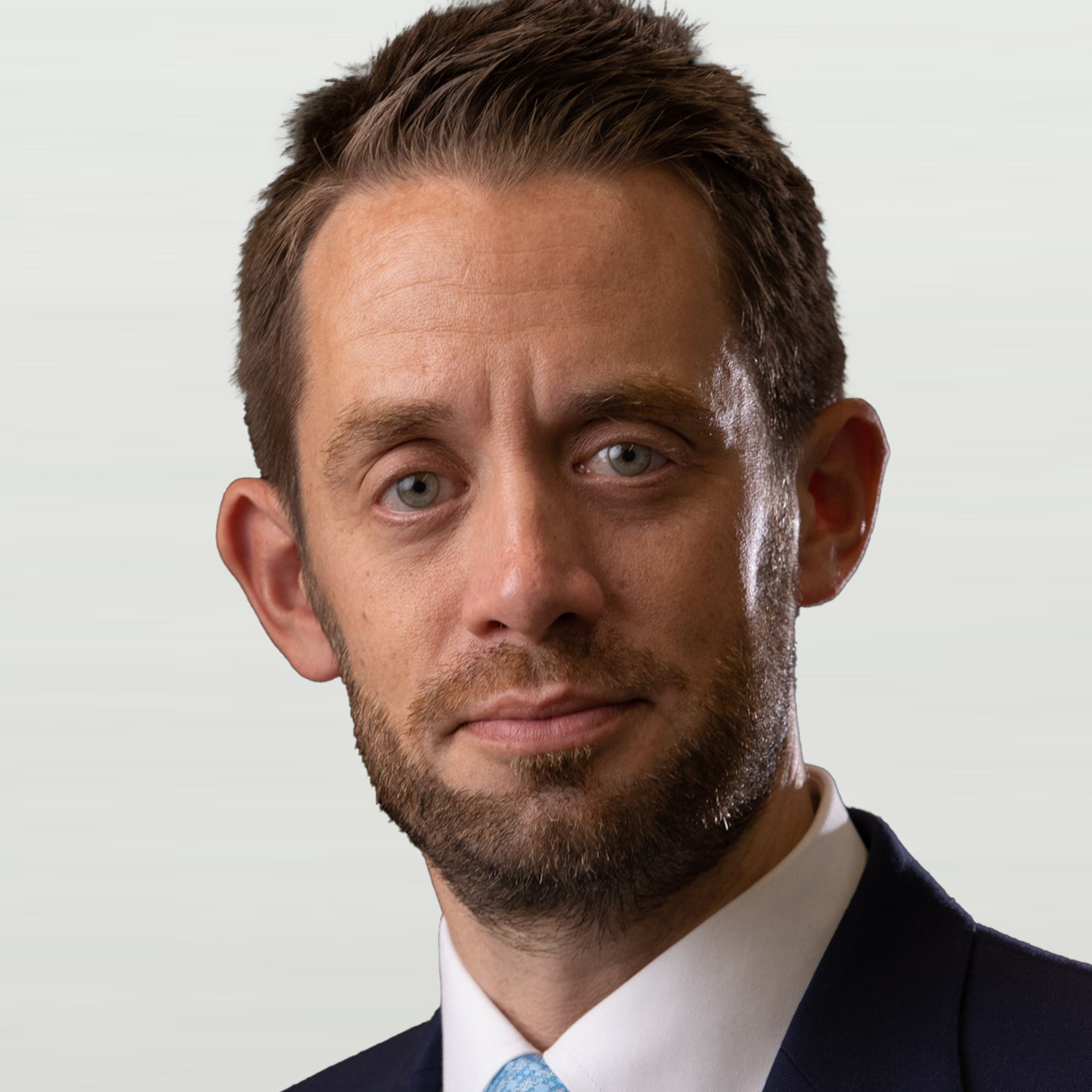
In the latest in our regular series, Portfolio Adviser hears from Douglas Branson, head of business development at Algebris Investments (pictured right)
Which particular asset classes and strategies do you anticipate your intermediary clients focusing on in 2023?
It might sound obvious to say investors should focus on diversification – but it matters. Higher inflation makes for a challenging investment environment, so allocating across asset classes is logical. Investors should ask themselves whether their portfolios have been constructed for a different environment.
Significant opportunities remain in certain sectors, including financials, with the recent collapses of Signature Bank and SVB, and the takeover of Credit Suisse demonstrating the importance of both a selective approach and active management. Banks are the most positively geared sector to higher interest rates. A new monetary cycle has transformed their profitability – to the extent that UK and European banks are producing their strongest results in 16 years.
Bank balance sheets still hold substantial unused Covid provisions and banks have made provisions for an anticipated recession. If recession is avoided, these provisions will be fed back into profits so banks would make their highest profits in a long time. With supportive fundamentals, valuations and technicals, the equity and credit of banks offer opportunities for both capital appreciation and income.
Fund buyers continue to show appetite for sustainable investment products – however, after a watershed moment for ESG scrutiny in 2022, investors have become more discerning and selective about the desired approach and outcomes of these strategies.
“Investors ought to consider looking outside their comfort zones to meet their risk and return requirements.”
Should end-investors – and, by association, asset managers – be thinking beyond equity and bond investments? Towards what?
Four months into 2023, heightened economic and market volatility looks unlikely to reduce any time soon. As such, investing outside of traditional equity and fixed income strategies seems prudent – although these should represent the core of most investors’ portfolios. Investors ought to consider looking outside their comfort zones to meet their risk and return requirements. This does not mean taking on more risk but does mean considering how else to meet their objectives.
Importantly, for active managers, there are opportunities to stand out from the crowd within equities and bonds. Those with a strong understanding of financial equities saw the sector outperform last year when most areas of equity markets were negative. Despite recent volatility within financials, the potential for outperformance should still play out – particularly for global systemically important financial institutions and European banks. We also see selective opportunities across the global fixed income spectrum.
To what extent do private assets and markets fit into your thinking? What are the currents pros and cons for investors?
As means-of-access have evolved, a larger number of investors can now allocate to private markets. Previously, these products were only available to larger investors with less stringent liquidity requirements and longer investment horizons. As platforms allow a broader range of investors to select private debt and equity, these strategies can be used more widely in portfolio construction to improve diversification, manage volatility, enhance risk-adjusted returns and reduce correlation with public markets.
In addition to our private credit offering in non-performing loans, we recently launched a private equity offering focused on the green transition. We will continue to develop our expertise in private markets to help clients meet the above criteria.
Given client and regulatory pressure on charges, how is your business delivering value for money to intermediaries and end-clients?
Clients are willing to pay appropriate fees if they believe the solution offered will deliver results and they will receive a high level of service. The core offering of an asset manager is its investment proposition – yet the complementary functions around this core are all part of the overall service an investor will pay for.
To deliver value for money, we place significant emphasis on understanding our intermediary clients’ businesses, what is interesting to them, what they are concerned or excited about as far as risk assets are concerned, how they like a fund provider to work with them and the pressures they face from their clients.
“A dominant theme of the next 10 years will be scarcity beyond natural resources to include areas such as skills, healthcare and education.”
How much of your distribution is currently oriented towards ESG issues and sustainable investing? How do you see the responsible side of investing evolving?
An increasing amount of our distribution efforts focus on sustainable investment solutions, based on client demand and our growing expertise. We started by identifying our approach to responsible investment, corporate responsibility and engagement. Embedding this philosophy at a company level was important to us before launching dedicated funds.
We then turned our attention to the investment offering. With one exception, our UCITS funds are either SFDR Article 8 or 9. Last year, we launched a private equity green transition fund and a UCITS fund focused on sustainable investing, both of which are SFDR Article 9. We are exploring another dedicated fund with similarly high sustainability standards. As a proven specialist in financials, we are now building out a comparable specialism in sustainable investing.
A dominant theme of the next 10 years, we believe, will be scarcity beyond natural resources to include areas such as skills, healthcare and education. The next decade will be characterised by the need to foster economic growth compatible with strict environmental parameters. Companies offering the transformational solutions to achieve this will be the most successful. We also think investor and regulatory scrutiny of the ESG credentials of underlying assets within all funds, especially those labelled as ‘sustainable’, will increase.
How are you now balancing face-to-face and virtual distribution? Have you identified aspects where one is especially better (or worse) than the other?
Virtual meetings have been a positive for us. Fund selectors can be more efficient with their time and people from different offices can get involved more readily. As relationship managers and business developers, our time is also used more efficiently.
We always offer clients the choice of meeting in person or virtually. If we are pitching, as opposed to updating existing clients, fund selectors and allocators often prefer to meet in person. This is a business driven by relationships, after all.
What aspects of your lockdown routine – personal or professional – have you continued as people migrate back to office-working?
I moved companies during the first lockdown and it was vital to develop internal relationships quickly. I have retained the emphasis on effective internal communication and idea-sharing. We all had to work harder at that when we were stuck at home.
My work-life balance has improved, with greater flexibility and the option to work from home one day a week. I can do the school run more often, walk the dog with my wife and vary my exercise regime. Of all my learnings from the pandemic, one that has really stuck is the importance of maintaining a positive mindset.
How did you spend your Easter break?
With my wife and our four children in Quinta de Lago, Portugal. I even found time to play some golf.
“The active ‘versus’ passive debate is maturing, with each side – hopefully – recognising the two styles can and should be complementary.”
In what ways do you see the asset management sector evolving over the next few years?
Flexible working practices are likely to stay, which is positive – but communication must remain high. Regulation will evolve further to continue improving investor outcomes. A decade on from the introduction of the Retail Distribution Review, it is clear consumers of financial advice have benefited.
Industry consolidation will continue, as fees and margins remain under pressure while costs rise. Firms that are neither very large nor very specialised will continue to be victims of this trend. Sustainable products will evolve, with fund providers having to refine their approach after recent SFDR article downgrades. The active ‘versus’ passive debate is maturing. Each side will – hopefully – become less evangelical and recognise the two styles can and should be complementary.
In business development, we will likely see practitioners become more professional and knowledgeable. Fund selectors are looking for an understanding of their business and approach to investing, accompanied by tailored solutions. Sales is less transactional than in the past. Striking the appropriate balance between quality and quantity, both in terms of product and client service, will grow more important.







